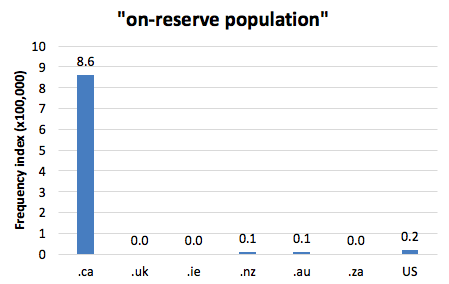DCHP-2
on-reserve DCHP-2 (October 2016)
adj. — Aboriginal (First Nations)
pertaining to living and/or working on an Indian reserve.
Type: 4. Culturally Significant — The concept of the reserve is important in legal interpretations relating to the rights of the First Nations peoples. As Chart 1 shows, which uses the term adjectivally, on-reserve is most frequent in Canada.
See COD-2, which labels the term "Cdn".
